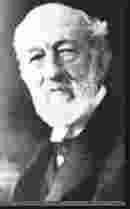Author: David Cox
From the Webmaster
12/18/2024 I am converting all of the zipped mySword modules on this site to straight *.bok.mybible formats. If you visit us from a cell phone, you do not have to unzip these files. I am also changing the format somewhat. I am getting away from individual descriptions, and just making library lists where you can directly download the files.
If you come across a post that doesn't have a download link, please post a note to me in the comments of that post (no download), and I will try to get the file uploaded and linked to that post. We have had glitches in the past, and some posts lost their downloads. Basically, I am taking down all posts (650 posts on the site), and checking each one to see if they have their download, and if not adding it. Most do not. Once I take it down, it will repost (1 per day) until I am caught up and can work on new posts. Note that MySword reads theWord modules and esword modules now, so use them if you have them. Check these sites twmodules.com and eswordlibrary.com
If you can use these mysword modules in your Christian life and ministry, I need a big favor from you. I need you to pray for me. I sustain this website alone, out of my own living expense money. The Google Adsense ads have been adding to my income at the rate of 5 US cents per day for Google Adsense Ads as a daily total on 32 of my sites, all of them combined earn me a nickel per day except on bad days when it is less. I have been hacked continually, and these sites breakdown or are hacked, so I need your prayers. Please pray that God would protect this labor of love. If you cannot donate, please pray for me at least.
-- David Cox, Webmaster
Bullinger The Book of Job
The Book of Job
by Ethelbert William Bullinger
Summary of Bullinger The Book of Job
In this commentary on the book of Job (Bullinger has 40 chapters), Bullinger (Brethren) does an extensive work. This module has a lot of OCR errors in it though.
The oldest lesson in the world, as seen in the Book of Job, is that man’s way is not necessarily God’s way. In this study, E. W. Bullinger shows how the perfect workmanship of God is exhibited in our lives, even in times of great adversity. This lesson is essential to enjoying peace with God for time and eternity.
Bullinger’s commentary on the most ancient book of the Bible offers insights into God’s work in our lives. The author also gives us a distinctive translation of the Book of Job with explanatory notes and follows the literary and critical style of the book. In addition, figures of speech and divine names and titles are given special attention. Every Bible student will find much practical help in this unique approach to the Book of Job. Continue reading
Arthur, T.S. – Home Scenes, and Home Influence
Home Scenes, and Home Influence
Timothy Shay Arthur, 1854
This is another fiction work by Arthur. Continue reading
Grant The Revelation of Christ
Grant Revelation of Jesus Christ This commentary is Grant’s (Brethren) commentary on Revelation. It is a very brief commentary on the book of Revelation.
The Revelation of Christ
to his servants of things that are, and things that shall be.
Brief notes in interpretation
by F. W. Grant.
Published by Loizeaux Brothers,
Bible Truth Depot, 1 East 13th Street, New York.
Grant Revelation of Jesus Christ is Grant’s (Brethren) commentary on Revelation. It is brief. Continue reading
Anderson Robert – The Silence of God Theodicy
The Silence of God Theodicy
Topic: The Silence of God Theodicy
By Sir Robert Anderson
 Theodicy. This work is about when God is silent, the silence of God, which in theology it is theodicy. Why doesn’t God immediately vindicate his children.
Theodicy. This work is about when God is silent, the silence of God, which in theology it is theodicy. Why doesn’t God immediately vindicate his children.
Robert Anderson worked for Scotland Yard in England, and he was an excellent investigator. He was also a dispensation writer.
This work explains why God “doesn’t work like we would expect him to work.” This is theodicy.
